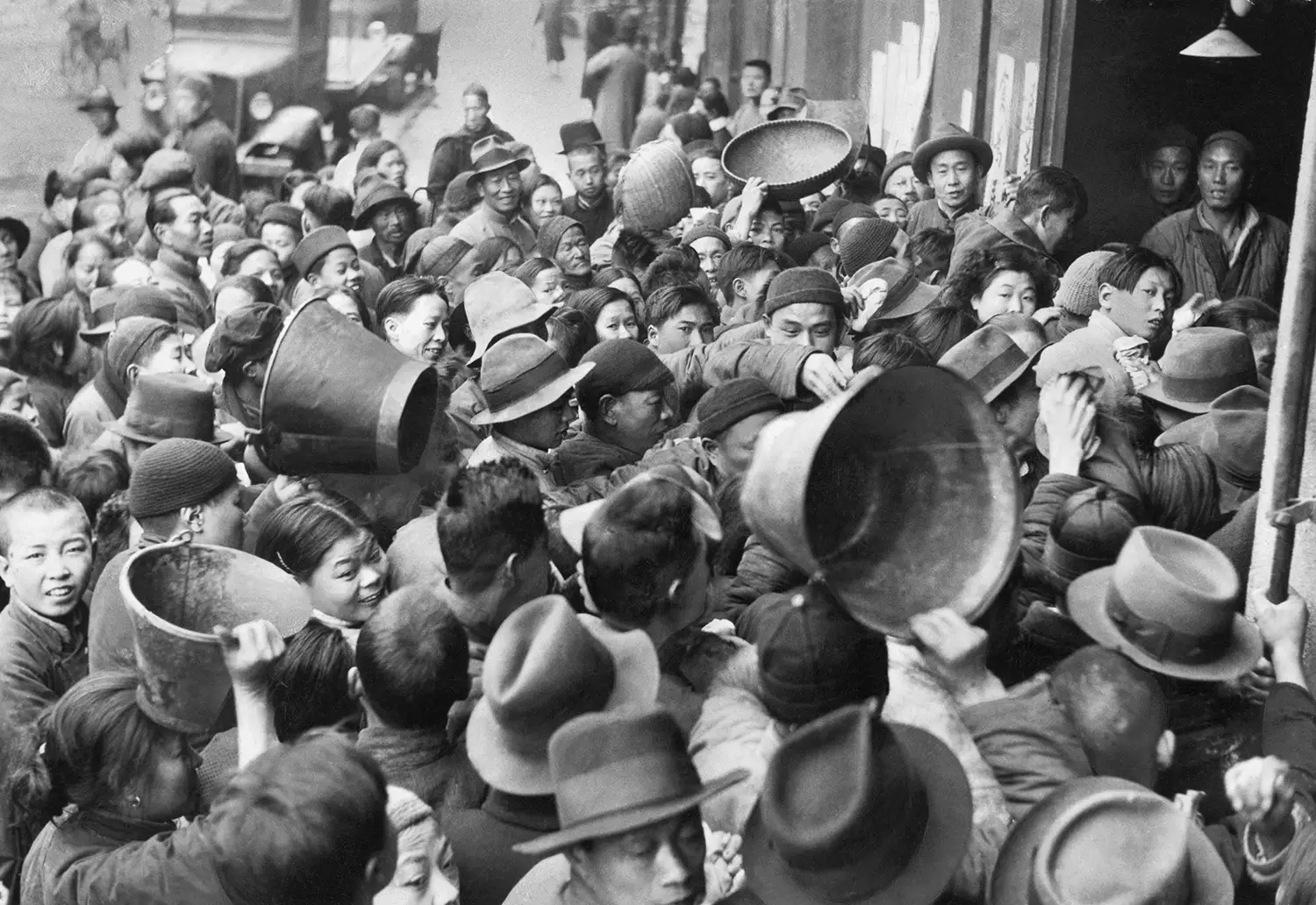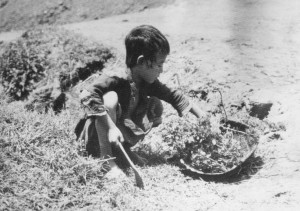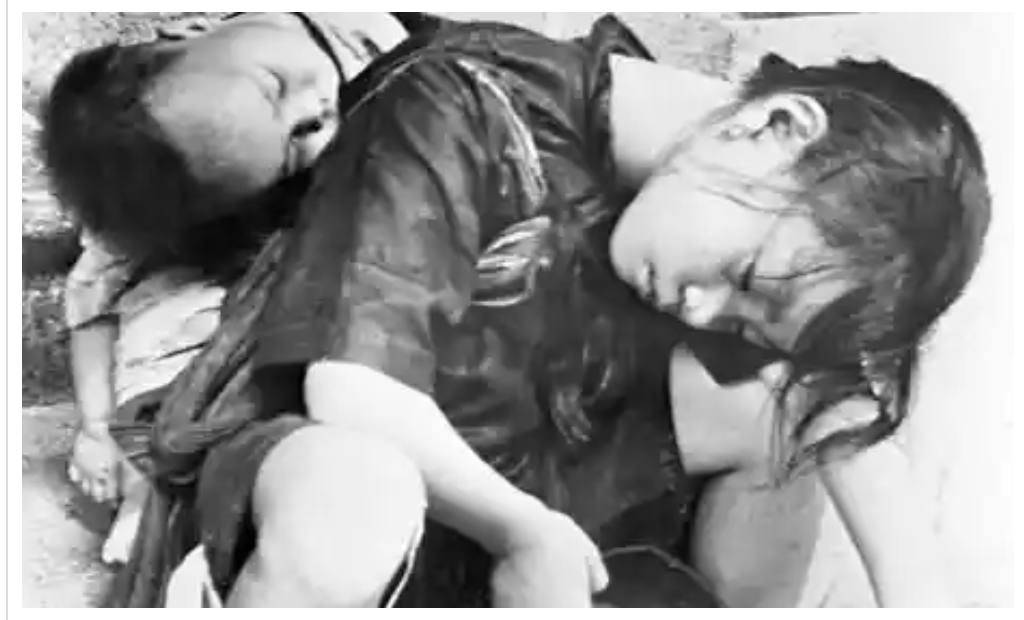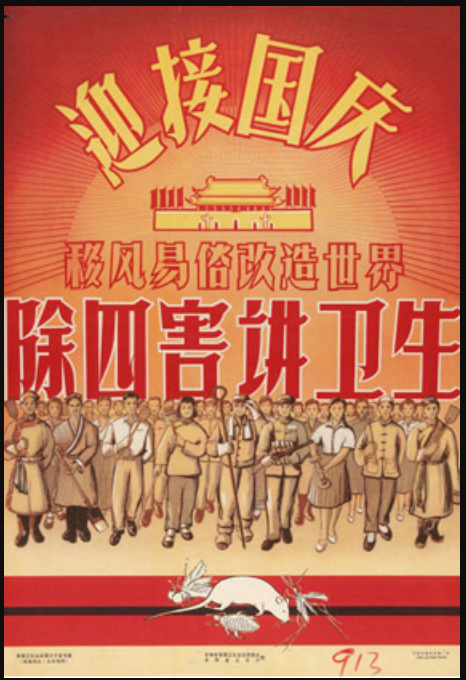Personal Interview with Sara Kross, 2020
The Four Pests Campaign

"A crowd of citizens push toward government station selling rice very cheap," 1963, Bettmann
The Great Chinese Famine
“China suffered a demographic crisis of enormous proportions.” -historian Basil Ashton, 1984
Within three years, over one billion sparrows were killed. The Four Pests Campaign was successful in suppressing the spread of disease, reducing childhood mortality, and establishing infrastructure. However, through eliminating sparrows and rats, the campaign altered the ecosystem, eliminating predators and causing a locust boom. In 1959, nature pushed back as the locust boom led to the world’s largest famine.
"Documents report several thousand cases where people ate other people." -Chinese journalist Yang Jisheng, 2014

"A boy gathers grass to eat during the Great Famine," Alpha History, 1959

"Two children sleeping on the streets," LIFE, 1959

"A manmade disaster...starving children in Shanghai," TopFoto, 1960.
Though grain output steadily increased prior to the Four Pests Campaign, it immediately declined following the program’s implementation. The famine was amplified by pesticide misuse, deforestation, and political corruption. Chinese officials distributed less rations to the poor while taking bribes from the rich. Large stores of grain maintained in warehouses showed the deep political corruption within China.
"To distribute resources evenly will only ruin the Great Leap Forward. When there is not enough to eat, people starve to death. It is better to let half the people die so that the other half can eat their fill." - Mao Zedong, 1959
"The starving people saw storage silos full of grain but no-one attempted to steal it. People sat alongside storage depots waiting for the government to release grain...Some people starved to death sitting next to the grain depots." -Yu Dehong, former secretary to the Xinyang commissioner, 2013
In response, Mao blamed nature, deflecting any blame for the pervasive hunger in China while denying the problem internationally. For both citizens and government officials, the failure of the Great Leap Forward exposed vulnerability in Mao and his promise to establish China as a superpower. This significantly diminished his political power, allowing experts to gain influence.
New York Times, 1961
The Sparrow Campaign continued until ornithologist Cheng Tso-Hsin informed Mao that sparrows weren’t eating as much grain as he thought, forcing Mao to change his focus from sparrows to bedbugs and import 250,000 sparrows from its ally the Soviet Union.
"We took down their nests, broke their eggs, and killed their nestlings. Later the scientists pointed out that the sparrows can eat insects, and the National Academy of Sciences issues reports on how many insects they ate compared to seeds. So we stopped killing sparrows. Chairman Mao just said suanle (forget it). In those days one man's word counted for everything." -unnamed Chinese botanist, 2001

"Eradicating the four pests and promoting public health", 1964, National Library of Medicine
The Chinese famine led to the death of over 30 million citizens over the next 3 years. In 1960, the USSR pulled out all its ambassadors and resources, forcing China to become independent.